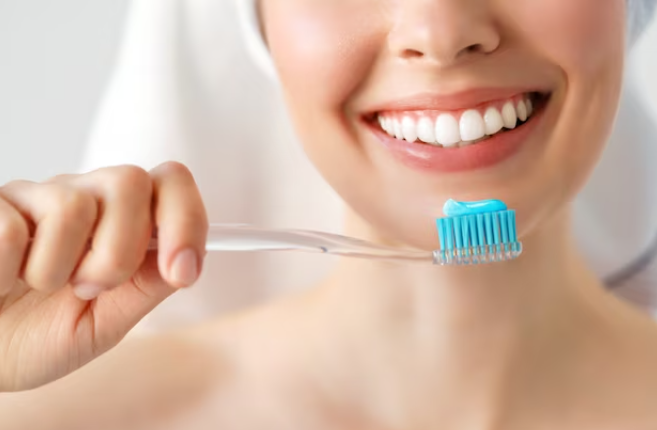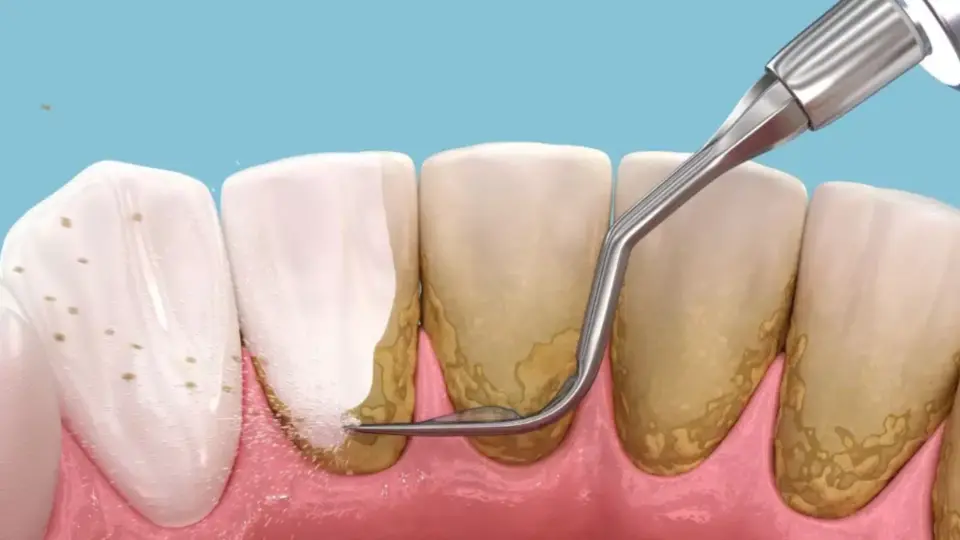You know the old saying, “Eating an apple every day helps keep the doctor away,” right? While this may be true for your overall health, it’s not necessarily the case when it comes to your oral health.
There are many myths surrounding dental care and oral health that can often lead to confusion and misinformation. In this blog post, we’ll debunk some common dental myths and separate fact from fiction when it comes to your pearly whites.
Common Myths about Oral Health
As with any topic, there are many myths surrounding oral health that can be misleading or even harmful. Now, let’s explore a few of the most prevalent dental misconceptions and set the record straight once and for all.
-
Myth #1: Poor Dental Health is Just About Cavities
 While cavities may be one of the most well-known dental problems, they are not the only concern when it comes to oral health. Poor dental health can also lead to gum disease, which affects the tissues and bones that support our teeth. If gum disease is not treated, it can worsen and potentially result in the loss of teeth.
While cavities may be one of the most well-known dental problems, they are not the only concern when it comes to oral health. Poor dental health can also lead to gum disease, which affects the tissues and bones that support our teeth. If gum disease is not treated, it can worsen and potentially result in the loss of teeth.
Furthermore, inadequate oral health has been associated with other systemic conditions such as diabetes and heart disease. It’s not only limited to dental problems; our oral health can greatly affect our overall well-being
-
Myth #2: Brushing Your Teeth Harder is Better
A common misunderstanding regarding brushing is the belief that the more force exerted, the cleaner the teeth become. However, this misconception can actually result in harm to your teeth and gums. Overzealous brushing may lead to enamel erosion, causing sensitivity and potential tooth loss.
Additionally, brushing too hard can cause inflammation and irritation of the gums, which can lead to gum disease. The key is not to brush harder but to brush smarter – use a soft-bristled toothbrush and gentle circular motions.
-
Myth #3: Only Children Get Cavities
While children are more prone to cavities due to their developing teeth and higher sugar intake, adults can also develop cavities. As we age, our gums may recede, exposing the roots of our teeth that are not as protected by enamel as the rest of the tooth. This can increase the chances of bacteria entering, leading to tooth decay.
Furthermore, certain medications that may be prescribed to adults can cause dry mouth, which also increases the risk of cavities. Therefore, it is crucial for grown-ups to consistently keep up a good oral practice and ensure a regular visit to the dentist.
-
Myth #4: Dental Problems Are Isolated
Many people may believe that dental problems are confined to just our mouths, but this couldn’t be further from the truth. Our overall well-being is closely linked to our oral health. If left unattended, dental issues can result in significant health concerns.
For example, gum disease has been linked to heart disease, stroke, and diabetes.
If left untreated, specific oral infections can potentially spread to different areas of the body.That’s why it’s crucial to not only take care of our teeth but also to address any dental problems promptly.
Is it true or false that poor dental health is linked to serious diseases and conditions?
Let’s explore the facts!
The truth is, poor dental health has been linked to many serious diseases and conditions. Studies have indicated a connection between gum disease and heart disease, stroke, as well as diabetes. This is because the bacteria in our mouths can enter our bloodstream through inflamed gums and travel to other parts of our body, causing inflammation and damage.
Additionally, individuals with diabetes are more prone to gum disease and vice versa. High blood sugar levels can weaken our immune system, making it more difficult for our bodies to combat gum disease and other infections.
Why Oral Health is Often Overlooked
When was the last time you went for a routine dental check-up? If you’re like many people, it may have been longer than you’d like to admit. Unlike other aspects of our health, oral health is often overlooked and not given the same priority as physical health.
This could be due to a number of reasons such as lack of education on the importance of oral hygiene or fear of visiting the dentist. Whatever the reason may be, neglecting your oral health can have serious consequences .
Aside from the potential link to serious diseases, poor oral health can also lead to discomfort and pain, difficulty eating and speaking, and even low self-esteem. It’s important to remember that our mouths are not just for eating and talking; they play a vital role in our overall well-being. Neglecting our oral health can have a ripple effect on other areas of our health and quality of life.
What are the Three Oral and Dental Problems?
The three most common oral and dental problems are:
- tooth decay
- gum disease
- bad breath
Tooth decay occurs when plaque (a sticky film of bacteria) builds up on our teeth and feeds off the sugars in our food, producing acids that erode our tooth enamel. If left untreated, tooth decay can result in cavities and eventual tooth loss.
Gum disease, also known as periodontal disease, is caused by the buildup of plaque and bacteria along the gumline, leading to gum inflammation and eventually bone loss if left untreated. Bad breath, also known as halitosis, can result from various factors such as inadequate oral care, consumption of certain food or drinks, smoking, and specific medical conditions.
Although it may appear insignificant, bad breath can serve as an indicator of an underlying dental or health issue that should not be overlooked.
Can Dental Problems Cause Health Problems?
Yes, dental problems can indeed cause health problems! As mentioned earlier, poor oral health has been linked to various systemic diseases such as heart disease, stroke, and diabetes. The mouth is the gateway to our body, and any infection or inflammation in the mouth can spread to other parts of our body through our bloodstream.
For example, untreated gum disease can lead to chronic inflammation in the body which has been linked to an increased risk of heart disease. Additionally, poor oral health during pregnancy has been associated with preterm birth and low birth weight babies. It is important to take care of our oral health not just for the sake of our teeth and gums, but for our overall health as well.
The saying “you are what you eat” rings true not just for our physical health, but also for our oral health. The foods we consume can either nourish or harm our teeth and gums, so it is important to be mindful of our diet and maintain good oral hygiene practices.
Still Confused? Let Us Help!
At Cascade Dental, we understand that there are many myths and misconceptions surrounding dental health. That’s why we strive to educate our patients on proper oral hygiene practices and debunk any false information. Our team of experienced dentists and hygienists can help you achieve optimal oral health through personalized treatment plans tailored to your specific needs.
Don’t let dental myths prevent you from achieving a healthy smile – schedule an appointment with us today! So, don’t hesitate to reach out to our expert team for any concerns or questions you may have about dental health.


